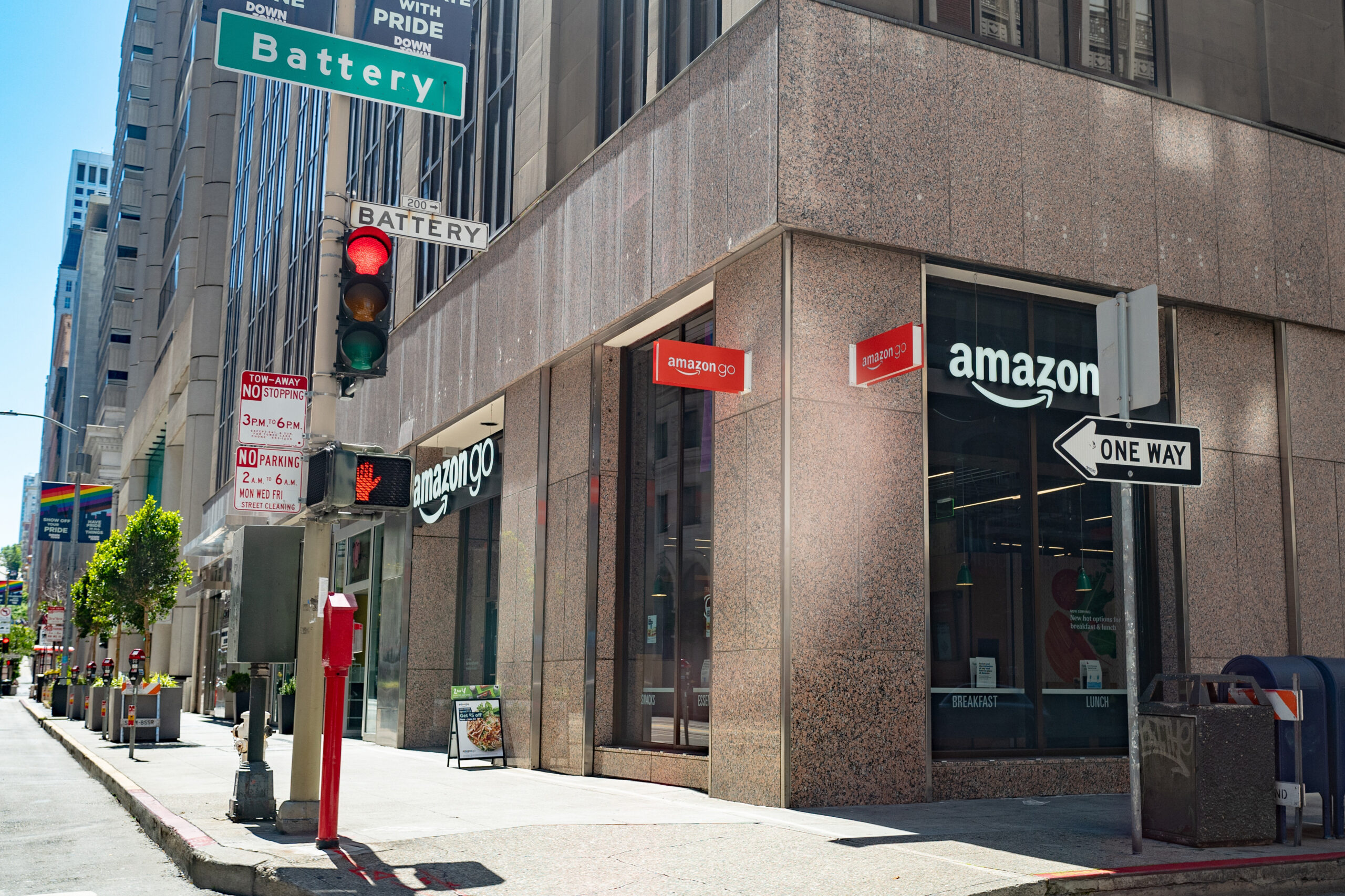A “Tax Amazon for Guaranteed Income” proposal seemed to have all the trappings of a political slam dunk in San Francisco. But supporters of the measure, called Proposition K, said on Wednesday that they’re suspending their campaign following criticism that the proposed tax is misleading.
“We are very strongly committed to taxing wealth and taxing the corporate greed that is going on in America and Amazon is one of the very worst,” said John Eberling, whose nonprofit TODCO, a large affordable housing operator, was the sole funder of the measure. “We heard they were putting out word that they wouldn’t be subject to the tax increase and that obviously was not the idea.”
They are now trying to figure out a way to remove the proposition from the ballot, which may require a court order, said Eberling.
According to its campaign literature, Prop K sought to tax e-commerce giants like Amazon to benefit at-risk populations such as pregnant Black women and transgender people, in addition to small businesses.
But the proposal sparked sharp pushback from the small business community, with Small Business Commission President Sharky Laguana tweeting that its language would wind up taxing many small businesses and potentially exclude Amazon because a large share of its local business comes from server hosting, not necessarily e-commerce sales. Along with Entertainment Commission President Ben Bleiman, Laguana circulated a petition against Prop K.
Laguana referenced a local law that if 80% of a company’s revenues fall under one business category, all its revenue gets taxed under that category. Neither Amazon nor its San Francisco lobbyist responded to a request for comment.
The dust-up over the proposed tax reveals the unintended consequences of trying to mix politically popular rhetoric with the city’s notoriously complex tax code.
Prop K was the brainchild of TODCO, who worked with former Stockton Mayor and basic income advocate Michael Tubbs and other community groups to create the measure. The housing operator plowed $500,000 into the campaign to support Prop K.
The idea of taxing Amazon for guaranteed income was popular: the tax polled at 74% support, according to its supporters, and received more than twice the necessary amount of signatures.
But the fine print painted a different picture.
Though Prop K is described as benefiting small businesses, Small Business Commission President Sharky Laguana said he was not asked for input. The city’s Treasurer and Tax Collector also confirmed that it was not asked for input, and said the proposed tax raised many unanswered questions. The measure’s authors did not speak with Amazon, either.
The result was a ballot measure that would have taxed many small businesses that pivoted to e-commerce during the pandemic and are already hurting, said Laguana. The tax hike applies to e-commerce businesses with more than $2.5 million in total revenues, while the federal definition of retail small businesses sets the floor at between $8 and $41.5 million in annual total revenue, depending on what type of goods are being sold.
Proposition K’s supporters acknowledged earlier this week that small businesses would be affected by the tax, but dismissed those concerns on the grounds that the tax was small. But by Wednesday morning, Elberling said that they hoped to put a new version on the November 2023 ballot.
“After we heard that this was going to apply to small businesses to an extent that we did not intend, and because we were concerned Amazon was going to slip away, we thought it was better to pull it away and re-draft it so it’s airtight with regard to companies like Amazon,” Eberling said.
